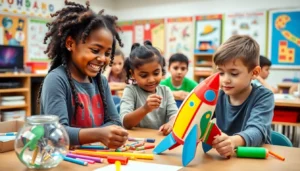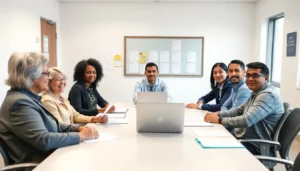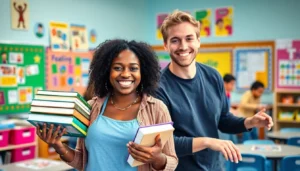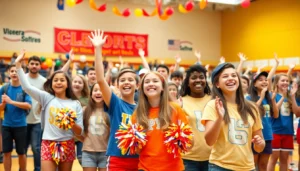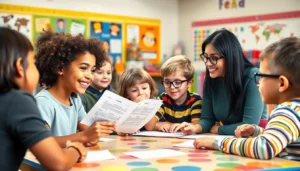Table of Contents
ToggleSchool events are the secret sauce that makes education truly unforgettable. From spirited pep rallies to jaw-dropping talent shows, these gatherings transform ordinary days into extraordinary memories. Who knew that juggling and karaoke could teach teamwork and confidence?
Importance Of School Events
School events play a crucial role in enhancing the educational experience for students. They serve as platforms for students to showcase their talents, develop skills, and build lasting memories. Engaging in activities like pep rallies encourages school spirit and community involvement. Events such as talent shows foster self-expression and creativity among participants.
Participation in school events teaches valuable life skills. Students learn teamwork during collaborative tasks, enhancing their ability to work with peers. Communication skills improve as students interact with audiences and participate in discussions. Confidence grows when they take on roles, whether in performances or organizing committees.
Moreover, school events promote inclusivity. They bring together diverse student groups, encouraging friendships beyond individual classes or grades. Activities that involve family participation strengthen the relationship between schools and communities. High attendance at events often indicates strong community engagement.
School events also support academic learning. Curriculum-related fairs and exhibitions deepen students’ understanding of subjects. Organizing events can integrate planning strategies and project management into the educational process. Overall, they create a dynamic learning environment that complements traditional academic methods.
Lastly, the joy of celebrating achievements through events creates a positive school culture. Celebrating milestones encourages motivation among students to achieve personal and academic goals. Through this blend of learning, fun, and community, school events contribute significantly to a holistic educational experience.
Types Of School Events
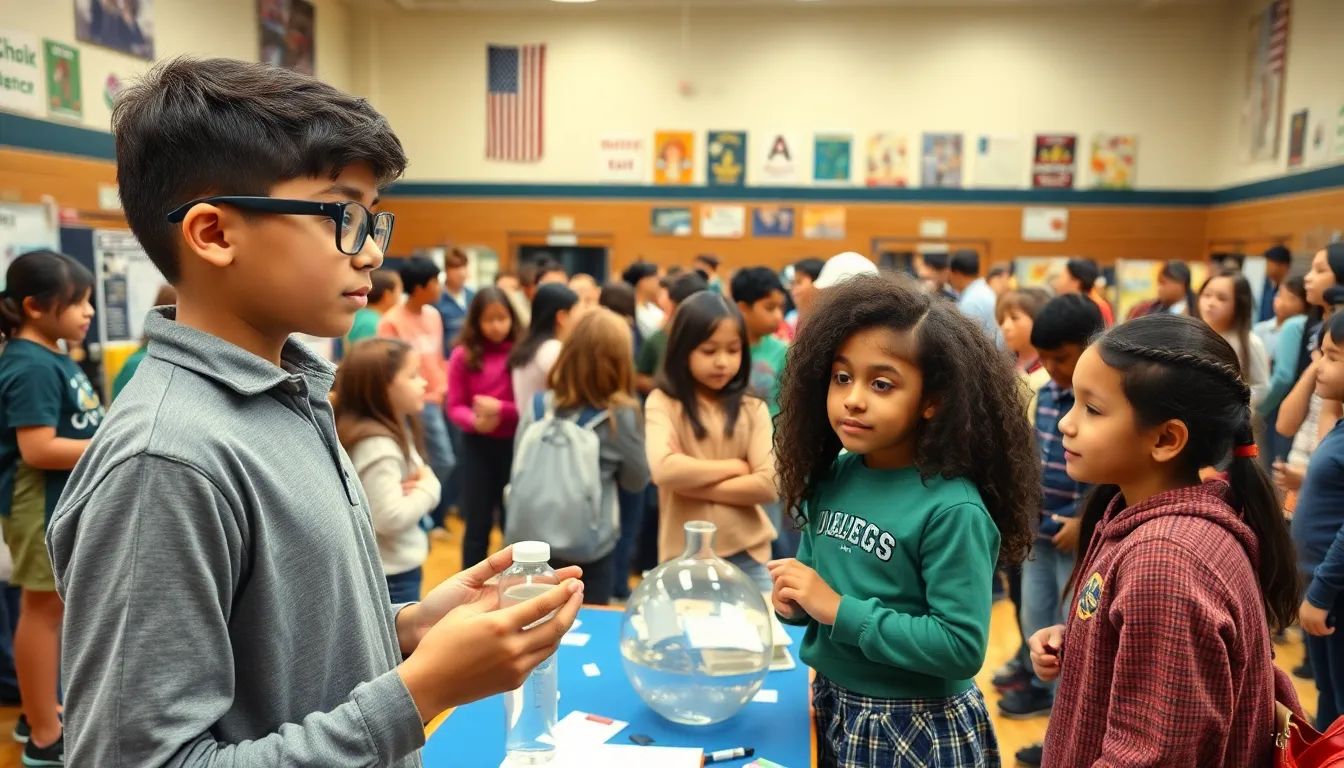
School events encompass a variety of activities that enrich the educational landscape. These events facilitate social interaction, promote school spirit, and enhance student engagement.
Academic Events
Academic events include science fairs, spelling bees, and math competitions. Students showcase their knowledge and skills, encouraging a deeper understanding of subjects. Workshops often accompany these gatherings, providing additional learning opportunities. Parents and community members frequently attend, fostering support for academic pursuits. Participation in these events strengthens critical thinking abilities and cultivates a passion for learning.
Cultural Events
Cultural events celebrate diversity through activities like heritage fairs, talent shows, and art exhibitions. Students perform music, dance, and drama, highlighting different backgrounds and traditions. These events encourage collaboration among peers, promoting understanding and appreciation for various cultures. School assemblies may host guest speakers or workshops focused on cultural topics, enriching the community’s knowledge. Engaging in cultural events helps students develop respect and empathy for others.
Sports Events
Sports events feature competitions in basketball, soccer, and track and field. Teams represent their school, fostering camaraderie among athletes and boosting school pride. These events are pivotal for building resilience and teamwork skills, essential for personal growth. Spirit weeks often precede competitions, uniting students and enhancing participation. Families and friends frequently attend, creating a supportive atmosphere that encourages athletic development.
Planning And Organizing School Events
Planning and organizing school events requires careful consideration and collaboration. Successful events enhance student engagement and foster community participation.
Key Considerations
Budgeting establishes the financial framework. Selecting an appropriate venue ensures comfort and accessibility. Scheduling dates avoids conflicts with other activities or holidays. Creating a timeline maps out tasks leading up to the event. Promoting the event utilizes various channels, such as newsletters and social media, to reach the school community. Feedback collection post-event aids in understanding successes and areas for improvement.
Involving Students And Parents
Engaging students in the planning process encourages ownership and excitement. Forming committees allows students to take charge of specific event aspects, fostering leadership skills. Parents play a crucial role by volunteering their time and expertise. Inviting parents to share their skills through workshops or performances enriches the event. Also, providing opportunities for parents to volunteer strengthens school-community bonds. Recognition of contributions boosts morale and encourages future involvement.
Impact Of School Events On Students
School events significantly enhance the educational experience of students. These gatherings promote teamwork and confidence, allowing students to develop essential skills. Pep rallies and talent shows create an engaging atmosphere where students can showcase their abilities.
Participation in academic events like science fairs fosters critical thinking. Students learn to articulate ideas effectively and gain a deeper understanding of various subjects. Cultural events encourage empathy and respect for diversity through performances and exhibitions, enriching the school environment.
Sports events play a vital role by promoting resilience and camaraderie among participants. Healthy competition cultivates school pride while building lasting friendships. Engaging in these activities contributes to a sense of belonging and strengthens relationships within the school community.
Communication skills improve as students engage with peers and adults during these events. Students learn to collaborate and connect with one another, leading to lasting memories and friendships. A strong community bond develops when families and local organizations participate in school events.
Additionally, involvement in planning activities promotes ownership and responsibility. Students who contribute to organizing events gain valuable experience that translates into real-world skills. Recognizing the efforts of students and parents during these events boosts morale and encourages future participation.
Overall, school events serve as essential components in creating a positive school culture. These occasions celebrate achievements and foster inclusivity, enhancing the overall learning environment for all students.
School events play a crucial role in shaping the educational journey of students. They provide opportunities for personal growth and community engagement while fostering a vibrant school culture. By participating in these activities students not only enhance their skills but also build lasting memories and friendships.
The collaborative efforts in planning and executing these events strengthen bonds among students and parents alike. Ultimately school events enrich the educational landscape making it a more inclusive and dynamic environment for all. Embracing these gatherings ensures a holistic approach to education that goes beyond the classroom.

